Finding design inspiration literally in the pages of old books has given South African artist, designer and entrepreneur, Keri Muller, the opportunity to create incredibly beautiful decor pieces from recycled books. Her company, Simple Intrigue, and the unique products it creates, is a wonderfully refreshing antidote to so much of the bland, mass produced decor swamping the marketplace today.
LoA recently chatted with Keri and got learn more about her entrepreneurial journey.
Tell us a little about how you got started in business and what led you to becoming an entrepreneur initially
I come from a pretty entrepreneurial family - my father is an entrepreneur and I have always had a multitude of jobs and enjoyed making money since I was fourteen years old when I had my first summer job as a waitress. I have always worked to pay for my travels around the world. I initially went into formal employment after finishing my education but I found offices to be pretty stifling places. However, I was lucky enough to have a good boss in my last job who was extremely supportive and encouraging and she has always been a mentor to me. When I turned 30, I went to live in the middle of nowhere, in northern Mozambique for six months, and when I came back, I was inspired to start my own business, creating design pieces from recycled paper.
Your creations are highly unique, many of them made from recycled books - tell us more.
I love books, I love reading, and I spend a lot of time in second-hand bookshops. In Mozambique where I lived for six months, the deforestation is dreadful and the Australian logging companies are just systematically destroying the forests of northern Mozambique, it is just terrible. I love and respect the forests, I love trees, I love books, and when I came back to South Africa from Mozambique, I saw that the second-hand bookshops pulp and give away a lot of books that do not get sold. I also visited local dumps and landfills and saw the amount of waste that could be recycled, and so I was inspired to start making things from recycled books and other products.
The first thing I made was inspired when I picked up a playing card which had been discarded on the street and I ended up cutting out a pop-up tree out of it. That led to me hand-cutting other playing cards with little messages, trees, shapes or flowers. I went on to laser cutting the cards and the end-products were the start of my forming a business from these creations. I subsequently branched out into creating things from books that I found and cutting those out to create little narrative scenes, making new stories from something that had existed before in the form of these books. My inspiration for each piece often came from what I found in the narratives of these books, and individual design pieces have been created from elements contained in the stories from the books themselves. With each piece I like to think I am creating another chance to tell a story.
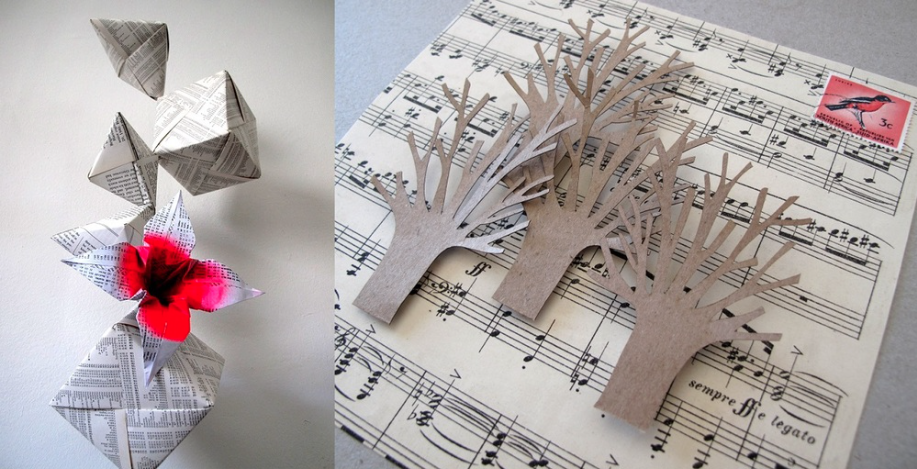
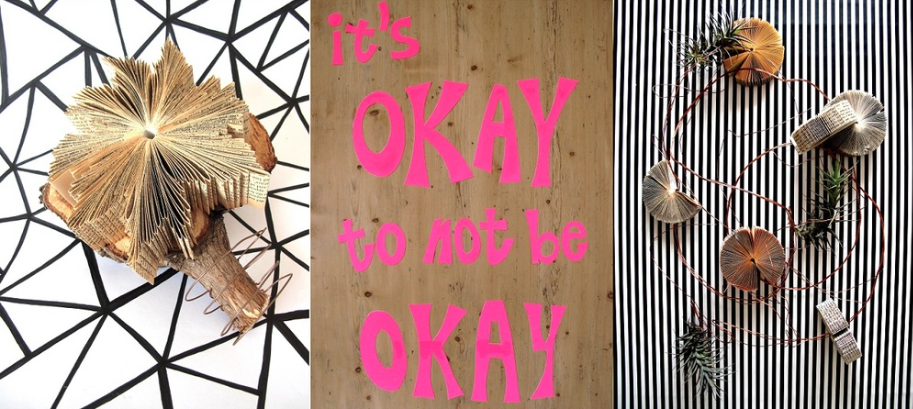
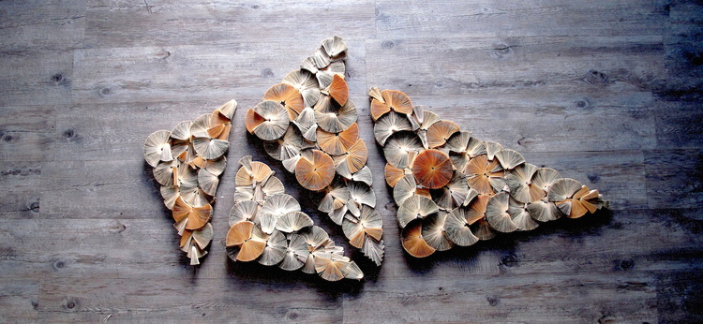
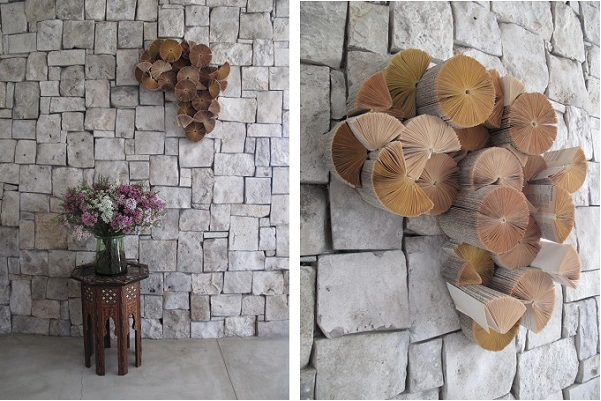
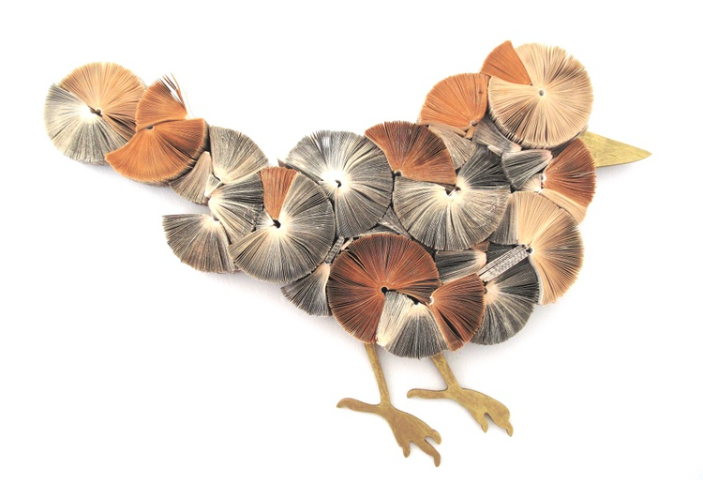
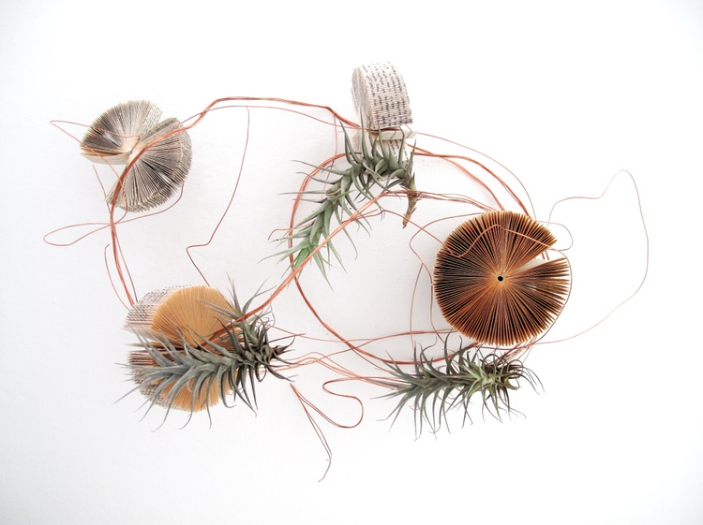
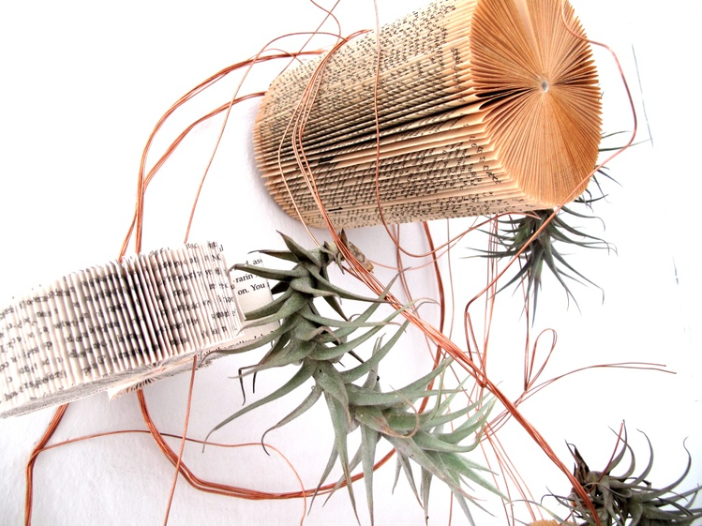
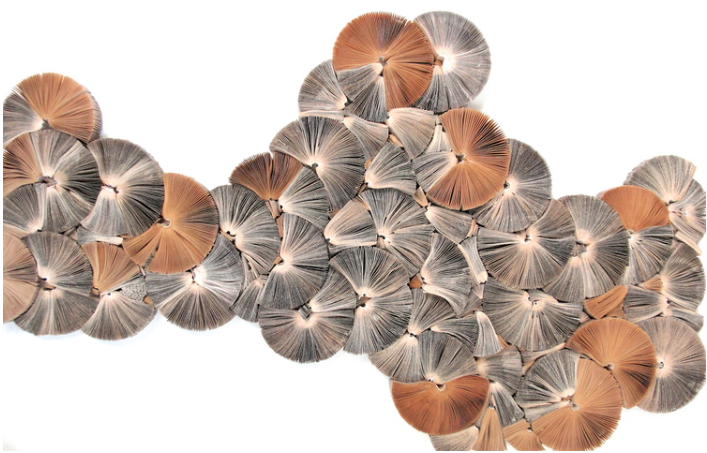
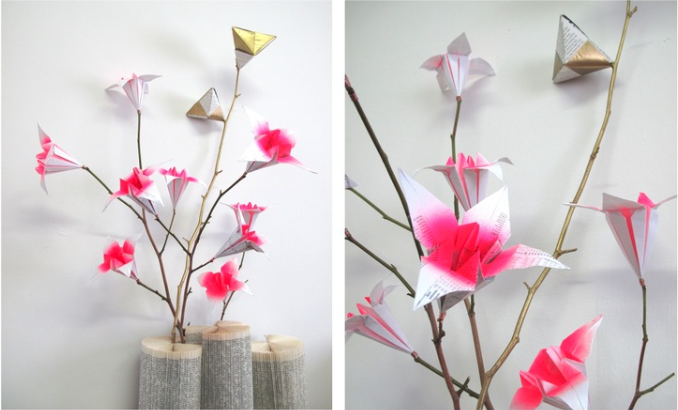

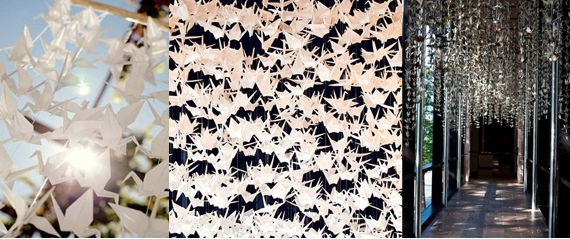
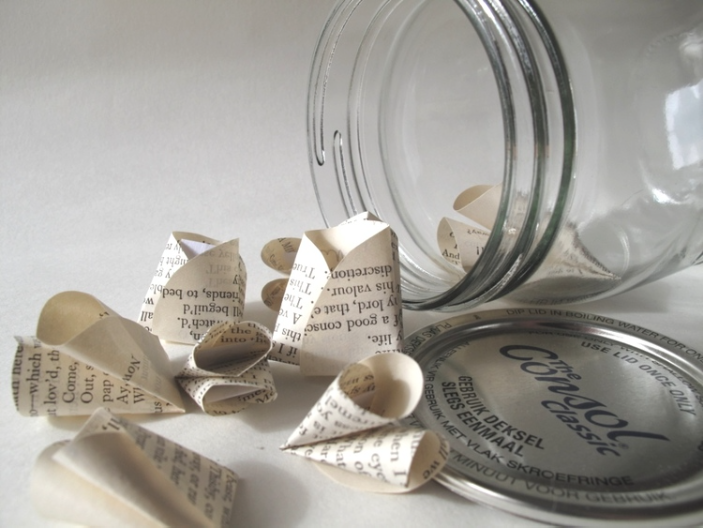


What have been the biggest challenges you have faced as an entrepreneur?
Cash flow, cash flow, cash flow! Here in South Africa, sales can be so seasonal and you are fighting against the big local retailers who often don't want to buy or stock local designs and products, even though your prices are competitive. Or often they have their own local designers but they manufacture their products in China, and this is really unfortunate as there is so much talent and expertise here in the country. It is such a shame that they do not support local design and manufacture. I think they are locked into buying habits and existing supply relationships, and ultimately it takes effort on their part to form new relationships with young, independent business owners here in South Africa. For example, I create really cost effective, unique, quirky, interesting greetings cards which retail for a great price, and the wholesale price gives more than enough room for the retailer to make a good markup, so they can make the money but for some reason they just don't want to engage with the small independent business.
What gives you the most satisfaction from being an entrepreneur?
Having my own time and being able to travel, and that is why I am entrepreneur, so that I have the freedom. I am not good at sitting in boardrooms listening to people talking about their challenges and not delivering this or that - I am instead the master of my own destiny. If something isn't being done, the buck stops with me. I have great relationships with great suppliers, and I outsource a lot of my production to other small businesses, and I enjoy that. I can also help to incubate young people in business who have absolutely no opportunities, for example in places like Khayalitsha, where I can help them to start their own businesses as part of my supply chain. As a result, in two or three years, they will be able to stand on their own feet as independent businesses. Living in a place like Khayalitsha, your daily fight for survival is so hard that you don't even have the basics, like a toilet that flushes, and your main focus is on finding the means to buy food for that day. Those are your main concerns each day. So when it comes to thinking about building skills for a future, it takes second place to simply surviving each day. It is often hard for these young people to find the drive needed to support their potential entrepreneurial ambitions when faced with such challenges. I was so lucky to have a great personal support structure when I started out, with my father having been an entrepreneur, my family and friends being really supportive, knowing people in the business and being really well networked. So, I know the importance of supporting those who are not so lucky - I reach out and provide advice and support all the time to these young people, and to try and provide opportunities.
What advice would you give to young aspirant entrepreneurs looking to start out on their own business journeys?
Just as I did, I would suggest that they start making things and then do the hard legwork of visiting shops, finding out who the buyers are and what they are buying. Knocking on people’s doors in the retail business and showing them samples of what they have produced, and they will learn as they go how to sell and market their own products and creations. It is hard work but it can pay off in the long run.
Also, don't over capitalise in the early days and don't get obsessed over the small things like creating a business card. Don't go out and spend a fortune on your branding and working out what your logo will look like or what your slogan should be. There is no point unless people are actually buying your products or services, and only when they are should you be looking at focusing on branding etc. Just get out there and sell your stuff. I see people all the time obsessing about what to call their business and paying someone a fortune to design a logo. But this sort of approach is almost obsolete these days, particularly as social media can be a more powerful way of raising awareness and connecting with people in the marketplace. Young startups are changing continually and morphing as people react to what they are selling and promoting in the social media space.
Where do you see your business going in the future?
Over the next three years, I see the business going more into direct retail. I have opened a shop in Newlands in Cape Town, a showroom selling my own products. My focus is going to be on more high-end, unique home decor products, whilst at the same time keeping all the small design items which sell from as little as R5 and which are wholesaled, keeping the bread and butter cashflow rolling, in contrast to the larger more unique items that can sell from up to R30,000. So, direct retail is the way I will be going, simply because the margins are there and importantly I have full control over the way my merchandising is done. It is really effective going to shows and exhibitions where I can choose how my products are displayed to the customer and ensure that they are appealing to customers. Whereas when you are in a shop environment selling through a second party, unless it is a very specific kind of shop, often things will get lost amongst other products. As your business evolves, you tend to get more sensitive about such matters because you realise how important it is.
What have been the highlights of your entrepreneurial journey so far?
The time when I realised I could afford to go and spend a month at an art retreat in the South West of France. It was an amazing place, full of artists and writers, and it was a place where I could just take time to draw, paint and create pieces that were not always commercially focused. My work is a strange dichotomy of commercial design and decor pieces combined with fine art, and usually at the back of my mind is a question of whether a particular product will sell, will it appeal to a customer, and this often dictates the creative process and can stifle you over time. So, the opportunity of being able to go on an art retreat and simply create for the sheer pleasure of it is wonderful.
Visit the Simple Intrigue website here.
Why LoA loves it....
At LoA, we really love Keri’s design aesthetic, and the decor and sculptural pieces she creates from recycled books are incredibly beautiful and really thought provoking. We also really like her entrepreneurial approach and her pragmatic attitude - she is building a business that has a real soul, yet still has an eye on the bottom line - a hard combination to achieve, but one that she demonstrates can be done with the right approach. In a commercial world that has so many bland, mass produced decor pieces on offer, Keri and her company, Simple Intrigue, offer a fabulously creative and beautifully crafted alternative approach to design and decor pieces. --- Melanie Hawken, LoA founder and editor-in-chief
This post is part of series that celebrates Africa's women designers during the month of February.



